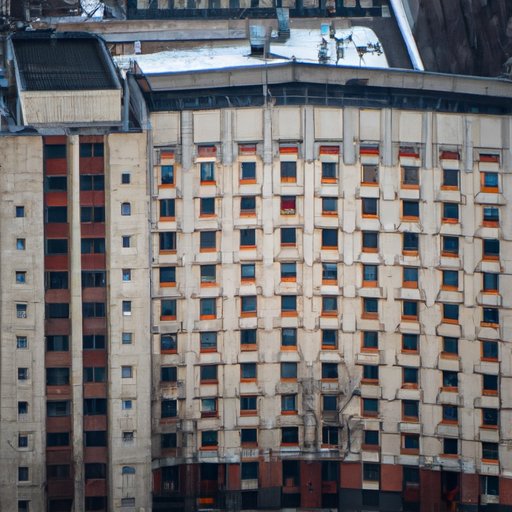I. Introduction
Have you ever noticed that most hotels do not have a 13th floor? It may seem like a weird and arbitrary decision to avoid a numeral, but there is a long-standing tradition behind this architectural quirk. In this article, we will explore why hotels do not have a 13th floor, diving into the historical, psychological, and business factors that contribute to this universal practice.
II. The Historical Origins
The superstition surrounding the number 13 can be traced back to different cultures and traditions throughout history. One of the most famous examples is the story of Jesus and his 12 apostles, with Judas Iscariot being the 13th and the one responsible for his betrayal. This association with betrayal and misfortune continued through the ages, with other stories associating the number with bad luck, death, and other misfortunes.
III. The Psychology of Fear
Pychologists explain that people develop phobias – such as the fear of the number 13 – through classical conditioning, or the associative learning process. They associate a certain feeling (in this case, fear) with a specific stimulus (the numeral), and this conditioning can be reinforced through personal or cultural experiences. This fear has led architects to avoid the number 13 in hotels’ design, such as skipping the 13th floor and rearranging the numbering sequence to erase it from the building.
IV. The Business of Hospitality
But why exactly do hotels avoid the 13th floor? At a glance, it seems like a weird superstition with no grounds in reality. However, it turns out that the fear of the number 13 can affect hotel occupancy rates and revenue. A study found that guests were less likely to book rooms on the 13th floor, and some avoided hotels that had this floor in their building. This trend affected both luxury and budget hotels, regardless of their target demographic or location. Thus, hotels began to avoid or rename the 13th floor to avoid losing potential customers and revenue.
V. The Hidden Meanings
Despite being rooted mainly in superstition, some theories and myths connect the number 13 to historical or symbolic events. For instance, several pagan religions worshipped gods and goddesses in groups of 13, a sacred number representing the lunar and solar cycles. In Norse mythology, Loki, the chaos god, crashed a dinner party where 12 gods were in attendance, making him the 13th guest and precipitating a series of misfortunes. The connection between the 13th floor and these myths, symbols, and conspiracy theories has created an aura of mystery and curiosity around it.
VI. The Ghost Stories
But the superstitions and beliefs surrounding the number 13 go beyond mere psychology and economics. Many legends and ghost stories have emerged surrounding the 13th floor in hotels, with some guests claiming to have seen or felt paranormal activities or spiritual presences linked to the number. Whether these stories have any grounds in reality, they have contributed to the perpetuation of the 13th-floor myth and added another reason why hotels avoid it.
VII. The Modern Alternatives
Recently, some hotels have decided to break from the traditional practice and include a 13th floor in their buildings. However, they often do it with a twist, such as naming the floor “14A” or “12B,” or transforming it into a special suite with unique décor or amenities. These new approaches to the 13th floor seek to reclaim the numeral and reinterpret it with more positive connotations, such as uniqueness, exclusivity, or adventure.
VIII. The Cultural Shift
As society becomes more rational, scientific, and inclusive, people’s perception of the number 13 and the superstitions surrounding it is shifting. More people are questioning the validity of these beliefs and challenging the established norms that force hotels to avoid a perfectly ordinary numeral. The trend of erasing the 13th floor may fade away as a new, more enlightened generation takes over the hospitality industry, and cultural practices adapt to modern times.
IX. Conclusion
The 13th-floor myth in hotels is not an isolated or capricious phenomenon – it has centuries of history, beliefs, fear, and economics intertwined into it. The reasons why hotels avoid the 13th floor vary from culture to culture, but the practice seems to persist despite being questioned by some. Whether the 13th floor will remain taboo or become an accepted norm in hotels, it highlights how irrational and pervasive human beliefs and fears can be.
